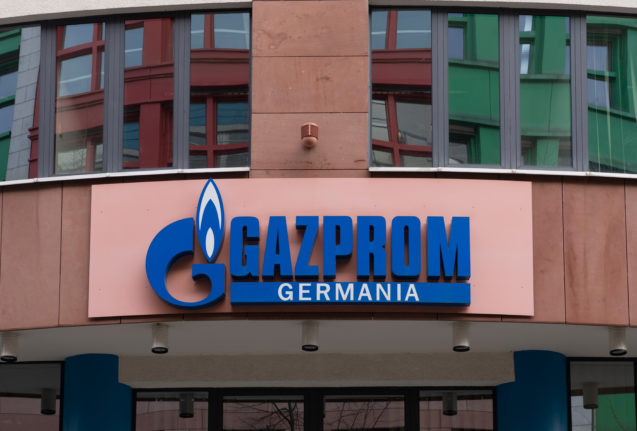Speaking to the Rheinische Post on Thursday, Klaus Müller, the president of the Federal Network Agency, said households should be put under more pressure to save energy ahead of winter.
"In tenancy law, there are specifications according to which the landlord must set the heating system so that a minimum temperature of between 20C and 22C is achieved," he said. "The state could temporarily lower the specifications for landlords. We are discussing this with politicians."
The changes to the tenancy law would mean landlords would be able to keep accommodation at a lower temperature throughout winter without any legal repercussions such as requests for rent reductions.
Currently, landlords are legally required to keep rented accommodation at a minimum temperature of 20-22C degrees during the day, and no less than 18C at night.
If they fall below these targets in winter and only heat the apartment at 18C, for example, tenants are generally eligible for a significant reduction in the rent, which starts at around 20 percent.
Müller said renters would already be facing a "nasty shock" when they receive the latest energy bills from their providers and see the unpaid balance.
"Gas prices for private households have already multiplied compared with the pre-war period," said Müller. "Tenants may be in for a nasty shock when high additional payments become due. These can quickly amount to more than a thousand euros, so shock waves will go through the country.
"Banks will ramp up their business with instalment loans, struggling companies will be threatened with insolvency."
The news comes just days after the launch of the Economic Ministry's "Deutschland macht's effizient" (Germany does it efficiently) campaign, which saw billboards and posters plastered across the country to remind people of ways to reduce their energy usage.
Question: how many of you in 🇩🇪 have actually noticed the govt's mass marketing campaign for energy-saving measures such as turning the aircon up 2C, de-icing the freezer and showering more thriftily? It's a fascinating experiment but not sure how ubiquitous it's been so far. pic.twitter.com/sYlMrrkUMB
— Oliver Moody (@olivernmoody) June 16, 2022
When the campaign was announced, environmentalists welcomed the sentiment behind it, but argued that energy caps should be put in place to enshrine low energy usage in law.
However, Network Agency president Müller said businesses should be incentivised to limit their energy usage with financial bonuses rather than legal mechanisms.
"We want to establish mechanisms to reward companies that voluntarily agree to gas quotas with a bonus," he said. "It is always better when adjustments are made monetarily rather than through authoritarian guidelines."
READ ALSO:
Gazprom row
A storm has been brewing in recent days over the German wing of Kremlin-linked Gazprom, which was recently brought under the control of the German Network agency.
As Germany attempts to stockpile gas for winters, Berlin suspects that the Russian company is deliberately limiting gas supplies in order to create instability and drive up energy prices.
On Tuesday, the company announced it would be reducing its gas deliveries via the Nord Stream pipeline by 40 percent due to alleged "repair" work - a move that Germany slammed as "political".
In retaliation for the comments, Gazprom then announced it would cut deliveries by a further 33 percent, dampening hopes that Germany will be able to shore up its gas reserves before winter.
READ ALSO: Germany sees ‘political’ motive behind Gazprom gas cut
As supply issues continue to drive up costs for consumers, tenants have been hit particularly hard by soaring prices in the energy sector - though tenants' rights groups fear that the worst is yet to come.

"Many customers are currently experiencing enormous price increases for oil, gas and electricity," Melanie Weber-Mortiz, federal director of the German Tenants' Association, told the Neue Osnabrücker Zeitung.
"Instead of one-off allowances, we need permanent relief on heating costs, at least for the period of the energy crisis. In addition, it must be ensured that tenants cannot be terminated if they cannot pay their high additional payment within 30 days of receiving the utility bill."
Since most electricity and gas companies charge monthly bills based on an estimate of costs and usage, people could only start to be hit with the massive jump in prices once the final calculation of actual costs is made.
According to the Tenants' Association, landlords also have a duty to shop around for energy providers and find the cheapest offers.

Comments (1)